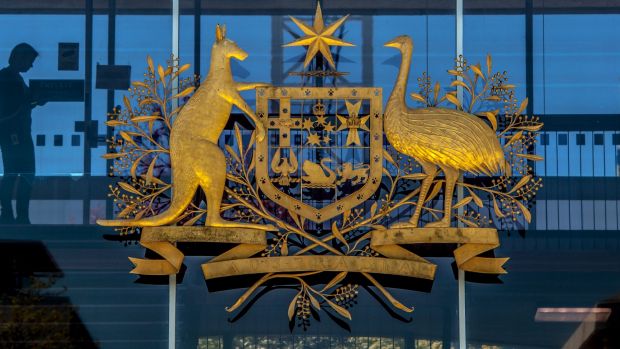This material belongs to: The Canberra Times.
Findings by an ACT corruption watchdog could remain secret until if or when the matter comes before a court as they are just an “opinion”, a parliamentary inquiry has heard.
The Select Committee into the Establishment of an ACT Integrity Commission heard evidence from its first witnesses on Thursday.
Among them was parliamentary ethics advisor Stephen Skehill, who suggested public hearings could do irreversible damage to the reputations of the innocent and all evidence should be heard behind closed doors.
He said a body with coercive powers, like the proposal in the ACT, could uncover evidence that was inadmissible in court and any rulings of misconduct or corruption were merely an “opinion”.
Canberra Liberals’ MLA questioned how public confidence could be restored if hearings were held in secret.
Mr Skehill suggested the evidence, if not actionable in a criminal or civil context, could lead to “systemic change”, which would require a separate inquiry.
However ACT Director of Public Prosecutions Jon White said private hearings went against the principles of open justice.
He told the committee the problem of having inadmissible information in the public domain was something encountered in law courts every day, where judges instructed juries to disregard any evidence which was not laid out before them.
“Juries are generally quite good at doing this,” Mr White said.
He said the “disinfecting sunlight of public hearings should be the general rule,” although acknowledged most other corruption bodies could call private hearings at their discretion.
Mr White said to save the need for a “standing army” to be on hand, the commission could be run out of the DPP office, the Government Solicitor or Legal Aid, but “careful walls” would have to be put in place to stop leaks.
“If these inquiries give rise to matter of prosecution there has to be a reinvestigation of matters of at least a putting together of a brief containing material other than non-compulsorily acquired material,” Mr White said.
“This function of finding misconduct or corruption is a completely different function from the prosecution. That finding itself carries no significance for a prosecutor. A prosecutor would have to find an offence that had been committed and would have to find admissible evidence to substantiate it.”
The committee also heard any integrity commission should have oversight of the parliamentary staff.
Legislative Assembly clerk Tom Duncan said while he currently had the ability to investigate public interest disclosures made by staff, he did not believe the clerks should be placed in that position.
“Members of staff fall into a special category where even though they have a code of conduct it’s not quite clear to me if there is an issue about the code of conduct of a member’s staff how that might be handled under current arrangements,” Mr Duncan said.
“We actually think that’s one of the hardest issues to resolve, what do you do about a member of staff because they shouldn’t escape any scrutiny whatsoever but there are problems with how they are to be treated, given their special status with members.”
While other watchdogs around Australia are complaints-based, Public Sector Standards Commissioner Bronwen Overton-Clarke suggested the investigation of every complaint would dilute the purpose of the commission and it should focus on systemic issues.
ACT Ombudsman Michael Manthorpe said a risk assessment should be carried out before the creation of the commission to determine where the gaps are in the current public service where corruption could hide.
The hearings will pick up again on Monday before resuming in September.


